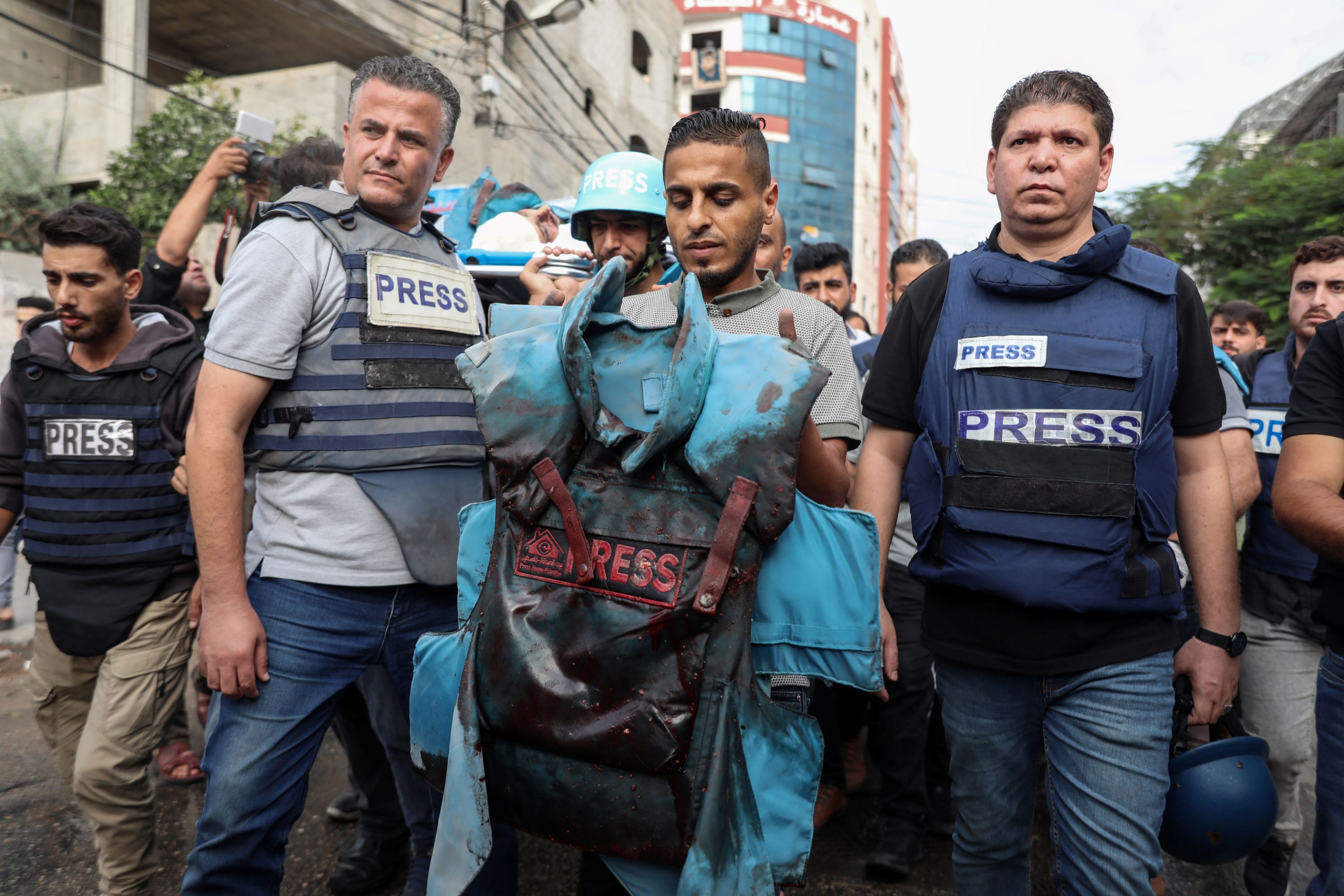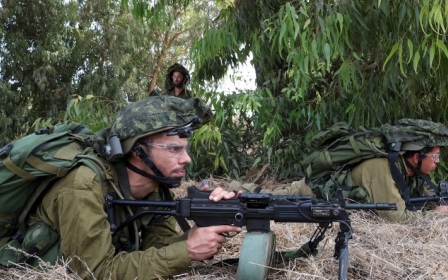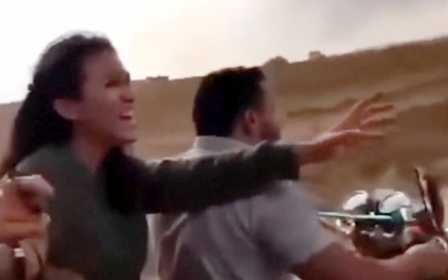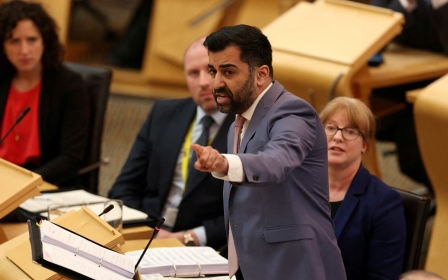Israel-Palestine war: Locals recount Israeli air strike that killed three journalists
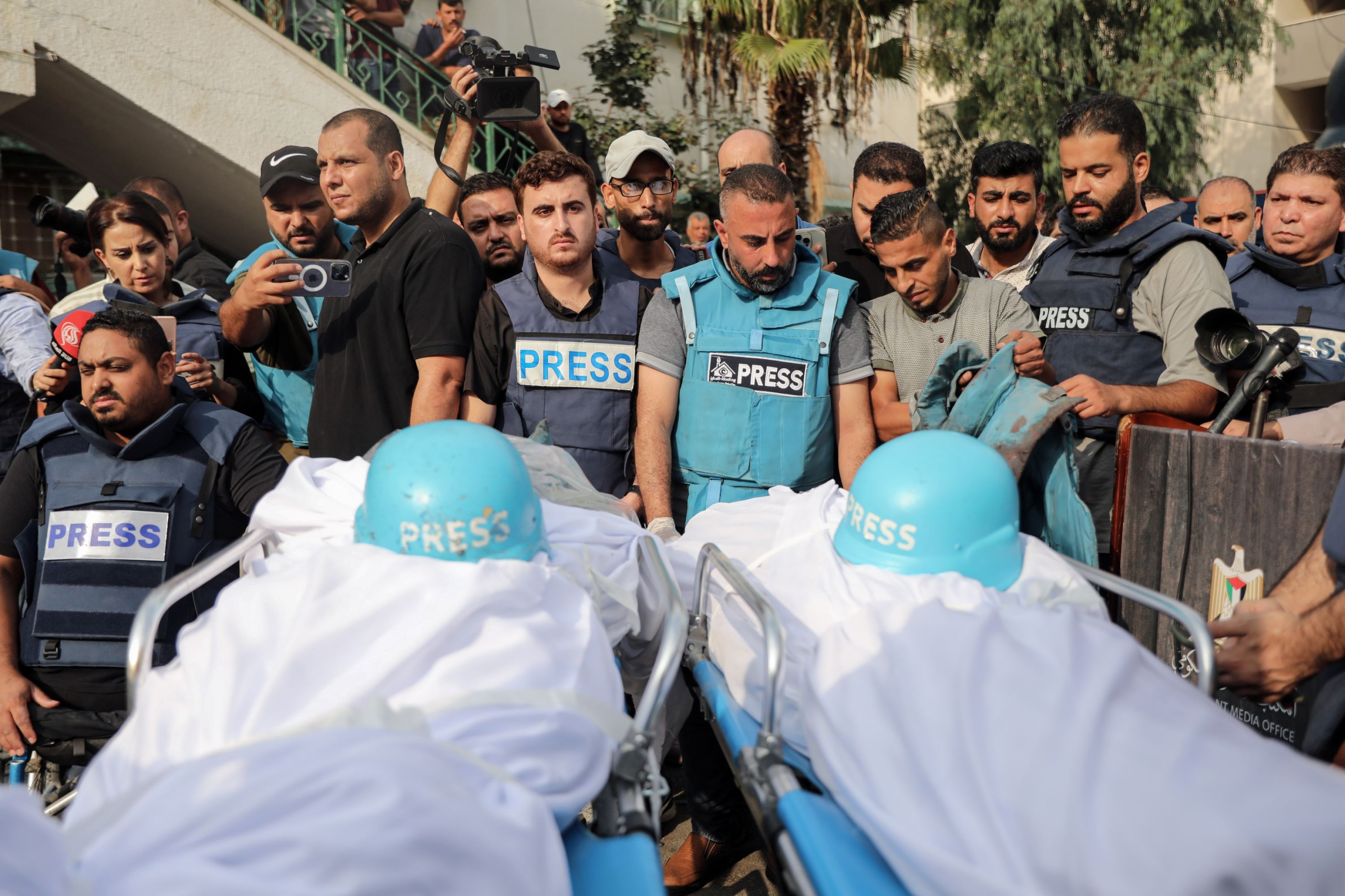
Journalists in Gaza remain fearful after an Israeli air strike killed three of their colleagues overnight.
Said al-Taweel, Mohammed Sobboh and Hisham Nawajhah were killed while covering ongoing aerial bombardments of the Gaza Strip.
“Unfortunately, they have sent a warning notice to the Hiji building just now that it will be bombed,” al-Taweel said, his last words, according to Al-Jazeera.
New MEE newsletter: Jerusalem Dispatch
Sign up to get the latest insights and analysis on Israel-Palestine, alongside Turkey Unpacked and other MEE newsletters
“The area has been evacuated entirely. Women, men, the elderly, kids have all completely fled the area.”
All three were killed as an air strike hit the building.
Samer Zaaneen, another journalist, was with the three when the attack happened.
“We were at the Burj al-Ghefari,” he told Middle East Eye, referring to a building in Gaza.
“We went downstairs to cover [the situation] because there were people fleeing. Said [went] before us. We knew from colleagues that he was there. It was a call from Said that told us to go downstairs to take photos."
“Mohammed took the camera and went inside. I was standing with Hisham. Hisham told me ‘I would like to go’, but I told him no. Then Hisham followed him.”
He said the the F-16 strike took place as people were fleeing the building. Their premises were three buildings away from the one which received a warning from the Israelis.
“At the beginning, we didn’t expect the building to be bombed - there had been two strikes on the same building. So we didn't expect them to be hit,” said Zaaneen.
“One colleague told us that one journalist was lying on the ground. We found Said’s body."
"Hisham and Mohammed were missing. Only Hisham’s phone was ringing but Mohammed’s phone wasn’t reachable from the time of the strike.”
In 'cold blood'
More than 900 Israelis and 830 Palestinians have so far been killed since Hamas launched a surprise attack in southern Israel.
The ensuing bombardment Israel launched on the Gaza Strip is, however, much more familiar to the residents of the enclave, who have endured repeated operations since it was first blockaded in 2007.
Dozens of Palestinian journalists have also been killed across the occupied Palestinian territories since the year 2000, according to the Palestinian Ministry of Information.
Nawajhah, Taweel and Sobboh are just the latest in a long list.
Salama Marouf, head of the government Media Office, said the journalists were killed in “cold blood” despite wearing press vests.
“We had warned hours earlier of an intention by occupation forces [to kill journalists] after tens of notifications of evacuations were sent to media organisations,” he told MEE.
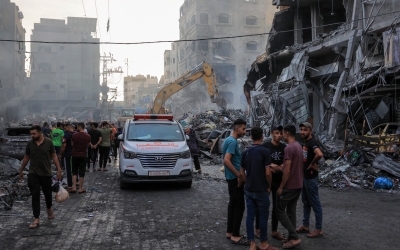
“We’ve experienced this criminal behaviour by the occupation forces in the past - targeting of journalists and media organisations and considering them fair targets, thinking this could cover their crimes and prevent the truth from being covered.”
Ahmed Issa, a resident of the area, said Israel had “targeted half the city” and spent 12 hours focusing on the same areas.
“The area was like hell. We didn't know until the morning. At night we evacuated. We thought it was one target. But when we woke up we saw a disaster. They targeted half the city,” he told MEE.
“Everyone on social media was saying we should evacuate. Most of the area is residential, so we didn’t predict this. But we evacuated. The electricity has been cut off from the beginning of the assault till now.”
Middle East Eye delivers independent and unrivalled coverage and analysis of the Middle East, North Africa and beyond. To learn more about republishing this content and the associated fees, please fill out this form. More about MEE can be found here.


